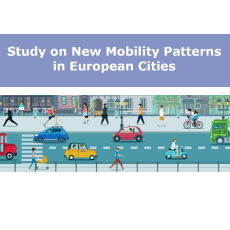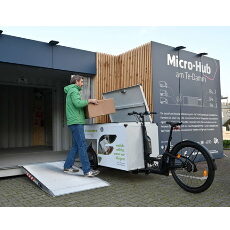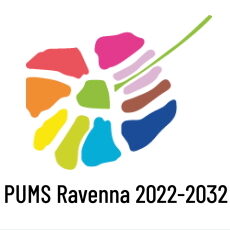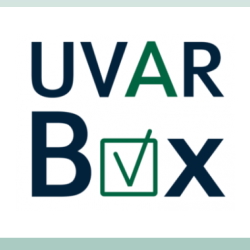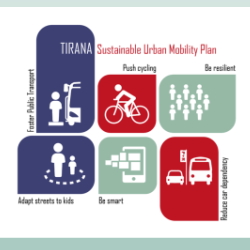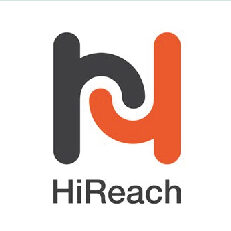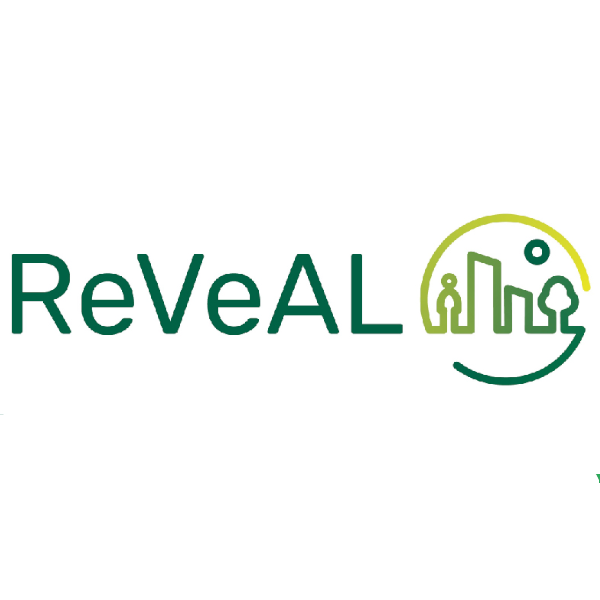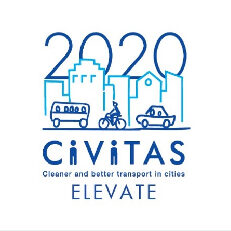- All
- African projects
- assessment
- assessment selected projects
- Assessment selected projects 2
- Assessment selected projects 3
- Assessment selected projects 4
- ASTRA
- Cost Benefit Analysis
- Electric mobility and ITS
- MOMOS
- planning
- planning selected projects
- planning selected projects 2
- planning selected projects 3
- planning selected projects 4
- planning selected projects 5
- projects
- Railways projects
- research
- research selected projects
- research selected projects 2
- research selected projects 3
- studies
- studies selected projects 1
- studies selected projects 2
- studies selected projects 3
- studies selected projects 4
- studies selected projects 5
- TRTingegneria
- TRUST
- urban mobility
- New mobility patterns in European cities The objective of the study is to provide an extensive data collection covering the areas of passenger mobility, urban logistics, fleet composition, transport activity and traffic for the EU Member States. The project is composed of three tasks: An EU-wide survey covering all mobility, including both urban and non-urban parts, based on the methodology recommended by Eurostat with a specific focus on new ways of mobility in cities (shared mobility, active mobility and use of alternative fuelled vehicles and modes). The task includes a statistical meta-analysis of similar surveys done at EU and at national, major regional and local level to derive evolution over time of mobility patterns. A targeted survey on urban logistics in the major EU urban centres, addressed at businesses that provide delivery services for own account or for hire, to understand the composition and the mileage of the fleet, the characteristics of the vehicles, the corresponding activity, the fuel/energy consumption, the Origin-Destination characteristics of the supply chain and the carbon footprint resulting from their activities in cities. A complete and consistent dataset of fleet, activity and traffic data and relevant indicators on the economic, environmental and usage aspects of transport, for the period 2005-2018, covering all road, airborne, rail and waterborne passenger and freight transport. TRT led the systematic review of existing mobility surveys in Europe, analysed the results of the passenger mobility survey (Task A), supported the activities for the urban logistics survey (Task B), and developed the rail dataset (Task C).
- Feasability study of urban freight transport, sustainable access to Reggio-Emilia historic centre The feasibility study of urban freight transport (UFT) sustainable access to Reggio-Emilia historic centre is a project contracted by Reggio Emilia Municipality. The project is underpinned by the results of the RESOLVE initiative (funded by Horizon 2020) that in the last three years, together with local administration surveys, has monitored average city centre accesses of both retailers and logistic operators. The study aims to understand the feasibility of urban consolidation centres (UCC) or micro consolidation centres (MCC) to favour last-mile sustainable operations throughout cargo bikes. This is gained by gathering a detailed level of information concerning local user necessities via online surveys and focus groups. Also, the analysis intends to evaluate the quality of infrastructure considering its compatibility with cargo bikes needs. Reggio-Emilia cyclelogistics feasibility study partly relies on local retailers and logistic operators who will be invited to join the Cyclelogistics Partnership. The joint venture is meant to define daily operative requirements as well as to form a permanent group of initiative forerunners and users. Such requirements will determine the characteristics of the consolidation centres in terms of dedicated structure (permanent, semi-permanent, temporary) and type of furniture/spaces that must consider the services offered and freights categories. The operative scheme would consist of the intermodal last-mile distribution obtained by the transhipment of parcels from heavier vehicles towards cargo bikes. Such a scheme would prevent or reduce the access of little optimised vehicles as well as polluting, harmful and space-consuming ones in the historic centre. Therefore, offering improved city centre attractivity without harming local supply needs, rather optimizing vehicles according to given spaces and offering more sustainable albeit efficient logistics operations.
- Sustainable Urban Mobility Plan (SUMP) of Ravenna (Italy) and sectorial mobility plans As a result of a tendering procedure, TRT Trasporti e Territorio, in association with META Mobilità Economia Territorio Ambiente and ITL Istituto sui Trasporti e la Logistica, has been selected by the City of Ravenna to prepare their Sustainable Urban Mobility Plan (SUMP) and the related sectorial mobility plans. Team’s activity is focussed on the preparation of the following documents, among other: Sustainable Urban Mobility Plan, which is articulated in several methodological steps related to: 1) monitoring and assessment of the current SUMP’s results; 2) background analysis of the mobility-related framework and its environmental, social and economic impact in Ravenna; 3) identification of the strategies for the construction of the SUMP scenarios; 4) design of detailed alternative scenarios for the SUMP; 5) evaluation procedure, implementing a ex ante transport model (VISUM). The environmental sustainability of the SUMP is verified through the application of the SEA procedure. Public Transport Plan, coherently developed with the SUMP, which includes a technical and economic feasibility study for the implementation of a low- or zero-emissions public transport system. General Urban Traffic Plan, prepared from objectives, strategies and measures previously defined in the selected short-term scenario of the SUMP. Urban Parking Plan, Functional Classification of the Road Network, Electric Mobility Plan, Road Safety Plan, Cycling Mobility Plan, Strategic document on urban logistics. The drafting of the Plans makes use of innovative methods for the quantification of Ravenna’s transport demand (for example, using data derived from the analysis of the cellular network), which are flanked by more traditional site surveys (vehicle counts, origin-destination surveys, counts on PT lines and at stops, etc.). Finally, all phases are accompanied by a vast communication and participation campaign, which sees the involvement of citizens and stakeholders through public meetings and online questionnaires.
- User-friendly information tool on urban and regional vehicle access regulation schemes UVAR-BOX is the EU project which has been established to tackle fragmented or unavailable information on up-to-date and relevant UVARs (Urban Vehicle Access Regulations) policies in European cities. The 24-month project successfully ended in 2023 and developed the Datex II standard for UVARs and a tool, the UVAR-BOX, to facilitate the input of UVAR data into the Datex II standard, which can be read automatically by navigation systems and mobile applications available to European drivers. UVAR policies pursue various objectives such as improving air quality, livability and reducing congestion. The project aimed to harmonize and disseminate information on UVAR policies in fleet management tools and navigation devices. Its widespread application and use will support both road users to plan journeys across the EU, and local authorities and Member States to set up standardized communication procedures in line with European regulations on the dissemination of mobility-related information (ITS directive and single digital gateway). TRT, as part of a large consortium, had the role of Italian Country Coach to support Italian public administrations in this digitization process. For more information Project brochure – Link Country Coaches web page – Website DATEX II: the standard for traffic and mobility information – Video
- The first Sustainable Urban Mobility Plan for the capital city of Tirana, Albania The study is part of a larger initiative called SUMSEEC II (Energy-efficient Urban Mobility in South-eastern European Countries), funded by the German Ministry for Economic Cooperation and implemented by GIZ. TRT supported the Municipality of Tirana in the development of their first SUMP, according to the latest European guidelines. The process started in October 2019, and was finalized in July 2020. The planning process pursued a strong collaboration with the different city departments and local stakeholders. Four large workshop were organized at relevant milestones, to guarantee the participatory approach that characterize a SUMP. The first part of the process was aimed at building a comprehensive analysis of the current city status based on previous studies, evidences collected on the field, discussions and feedbacks gathered from the stakeholders in dedicated workshop and surveys held until January 2020. The second part, focused on the drafting of the planning document itself, was accompanied by series of online focus groups and questionnaires that guaranteed and facilitated the participative process despite the lockdown in Tirana during the COVID-19 pandemic outbreak in Spring 2020. The proposed planning scenario is the result of the assessment of three alternative options by means of a Multi-Criteria Analysis. It includes a set of coordinated measures structured in six key strategies identified as founding policy pillars that respond to Tirana’s mobility challenges. For more information “SUMP for the City of Tirana”. Case study published on Eltis Platform
- HiReach, a project funded by the Horizon 2020 EU research program, addressed the specific mobility needs of segments of the population who are vulnerable to transport poverty and social exclusion Context and overall objectives of the project HiReach addressed the specific mobility needs of those segments of the population vulnerable to transport poverty and social exclusion such as people with temporarily or permanent reduced mobility, children, young and elderly people, women, migrants, ethnic minorities, low income, unemployed and people living in isolated and deprived areas. The project also analysed geographical and spatial elements affecting transport poverty to figure out inclusive mobility options that can properly work in urban-peripheral, peri-urban, rural, and remote or deprived territories. By combining different attributes of available transport concepts and bottom-up initiatives with smart operational schemes and IT applications, HiReach was aimed at the creation of viable business models for small scale, modular and easily replicable mobility services that can be provided at affordable prices or with minimum subsidies, targeting low-density and transport poor segments of the population. The HiReach mechanism for exploring, generating and testing inclusive mobility solutions was based on the creative work of startups and innovative entrepreneurs, but also on social innovation through the direct involvement of different social groups as co-owners of the proposed solutions. The overall ambition was to generate project results in strict linkage with developers and final users. Fieldwork activities have been conducted in 6 European study regions: Counties of Esslingen and Göppingen (Baden-Württemberg, DE), Naxos and Small Cyclades (GR), Inner Area Southern Salento (Puglia Region, IT), Guarda (PT), Buzau (RO), North and South-East Luxembourg. TRT was the project coordinator, leading a 9-partner international consortium. Summary of the project work The first analytical phase of the project explored travel behaviour and social habits of targeted vulnerable groups while assessing their travel demand and mobility needs. An extensive desk research across the EU Member States condensed available data, recent trends and scientific literature associated with transport poverty by targeting spatial specificities, mobility socio-economic landscape(s) as well as visible and hidden mobility needs and attitudes. This step required also the (re)-elaboration of the concept of transport poverty including a complex assessment of inequality and disadvantage, distinguishing between transportation-related disadvantage, social disadvantage and social exclusion. A cornerstone of the HiReach approach was the micro-analysis conducted on the field in six different countries. A set of 47 interviews with experts and stakeholders and the direct involvement of 166 vulnerable users through different focus group sessions served as validation of desk research activities and mobilization of local communities as co-owners of the solutions. In particular, TRT conducted fielwork activities in the Southern Salento area, focusing on the transport challenges of women and people with reduced mobility. A visual and descriptive representation of the identified needs and attitudes, featuring also mixed vulnerability characteristics and traits, was transposed into the elaboration of 6 Personas (see HiReach Insight Package). The following exploratory phase critically assessed the limits and drawbacks of the current supply of public […]
- CIVITAS REVEAL, Horizon 2020 project. Adding Urban Vehicle Access Regulations (UVARs) to the standard range of urban mobility transition approaches of cities across Europe ReVeAL is a “Research and Innovation Action” Horizon 2020 project financed by the European Commission. Its overreaching mission is to enable cities to optimise urban space and transport network usage through the selection as well as the implementation of new and integrated packages of UVAR (Urban Vehicle Access Regulation) measures. During the project, six pilot cities representing different sizes and challenges that are common to many other European cities, developed, implemented, tested and evaluated a set of UVAR measures. Cities were Helmond (NL), Jerusalem (IL), London (UK), Padova (IT), Vitoria-Gasteiz (ES) and Bielefeld (DE). The ReVeAL key output is a toolkit that help cities develop good practice UVARs, to help take urban road space from motorised vehicles and give them to people and sustainable mobility. The Toolkit consists of: A Decision Support Tool: 15 questions on the city’s goals and the area being considered for the UVAR, which gives a prioritisation of the building blocks (measures) that might be appropriate for your city. Fact Sheets on each Building Block: The factsheets include the definition of the building block, aspects relevant to timing, phasing and upscaling, time window options, complementary measure and enforcement options, equity issues and future considerations. There are also links to the other building blocks that might be relevant to use with each building block. Links to ReVeAL Guidance: The ReVeAL guidance covers aspects that are broader than a single building block such as the cross-cutting themes, and/or go into more detail on implementational issues than the factsheets allow. The different aspects are linked from the factsheets where relevant, as well as available in an online document. TRT was leading the “Monitoring and evaluation” work package with the aim of designing the evaluation framework, monitoring the implementation processes, as well as evaluating and assessing the impacts in the six pilot cities. TRT was also “pilot coordinators for the actions implemented in London and Padova. TRT experts were also involved development of the tool content and guidance, both as “transition area mentor” for mobility concepts and as “measure field leader” in the field of pricing measures. Finally, TRT was responsible for the technical development of the online Tool. For more information, Official website of the project. It contains an overview of the main elements of the project, the presentation of the 6 pilot cities and other useful resourches.
- CIVITAS ELEVATE, Horizon 2020 project – Increasing the Europe-wide impact of the CIVITAS projects CIVITAS ELEVATE is part of the CIVITAS initiative, a network of cities dedicated to cleaner, better transport in Europe and beyond that has implemented over 800 measures and urban transport solutions in more than 80 living lab cities Europe-wide. The knowledge gathered through these practical experiences is supported by a number of research and innovation projects looking at ways of building more resource efficient and competitive transport. CIVITAS ELEVATE’s scope was to increase the Europe-wide impact of the CIVITAS 2020 and other ongoing projects on urban mobility policy making. The project aimed at advancing the CIVITAS community to a higher level of knowledge, exchange, impact, and sustainability while guaranteeing essential high-quality support. It aimed to enrich the current CIVITAS generation and to feed future EU initiatives while building a European mobility community able to navigate transition. The CIVITAS ELEVATE project, active from April 2019 until April 2023, was carried out by a 6-partner consortium that includes M21 (leader), DTV, ICLEI, INOVA+, Breda University of Applied Sciences, and TRT. TRT was responsible of the evaluation and advancing knowledge activities, providing guidance and support to the stakeholders from across CIVITAS 2020. This enhanced the knowledge that the CIVITAS initiative has been building year after year, to improve urban mobility policy making and planning. TRT is also part of the new CIVITAS Coordination and support action MUSE
- Identification and collection of a set of indicators for the description of the urban sustainable mobility in European cities The SUMI project provided technical support for the identification and the collection of a set of sustainable urban mobility indicators in 50 European large and small urban areas. Main project activities were related to: providing rigorous and consistent methodologies for acquisition, harmonisation and analysis of data for the calculation of indicators; this included the definition of a «mentor» for each indicator, i.e. a reference experts capable to sort out all related technical issues; giving technical support to the urban areas and systematically collecting their hands-on experiences; appointed «urban area coaches» had the responsibility to establish direct links between the project consortium and the urban areas and help city administrations to gather the needed data; carrying on consultation, capacity building and dissemination actions addressed to subjects both inside and outside of the project; preparing realistic, harmonised and sound recommendations to the Commission for further improvement and extension of the indicator set; definition of an online benchmarking tool, available for European and non-European cities, aimed at comparing the indicators of each urban area with reference average values. TRT has been a key partner of the project, with direct responsibility in the coordination of data acquisition and technical assistance to the local experts, being «mentor» for four different mobility indicators. In addition, TRT experts have been «urban area coaches » for cities in Italy. The SUMI indicator set For more information: Webpage of the SUMI project on the European Commission portal. It contains the indicator set, the guidelines for the calculation of values and the benchmarking tool for the comparison of results Entire SUMI indicator set (.zip file) General harmonized guidelines for calculating the indicators (.pdf file) E-course to support cities with the application of the SUMI indicator set. Registration needed, free of charge

